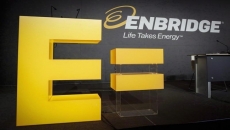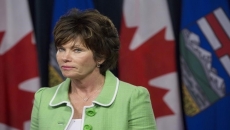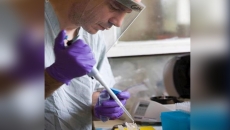In the old influencer economy, sun-kissed vacation pictures and glossy group shots were among the most valuable forms of social media currency. Now, these pandemic-flouting posts would be cause for public derision.
But a new type of photo has taken their place to induce FOMO — fear of missing out — across the online sphere: the vaccine selfie.
Photos of Canadians smiling beneath their masks as they roll up their sleeves to show off their bandages are increasingly cropping up on social media feeds as the country's immunization campaign expands to new segments of the population.
Experts say these selfies can encourage others to overcome their vaccine hesitancy, but may also incite jealousy among those who aren't eligible to book their appointments.
Ara Yeremian, a realtor in Vaughan, Ont., shared his vaccine selfie across social media platforms after receiving his first dose in January as the caregiver to his 91-year-old parents who live in a long-term care home.
"I wanted everybody to know that I was doing well and it's safe to take," said Yeremian. "Being able to be part of the solution makes me really happy."
Ryan Quintal, a registered practical nurse in London, Ont., said he felt it was his "duty" as a health-care professional to post his selfie as a way of showing his online followers that COVID-19 vaccines are safe and effective.
The 34-year-old said the photo even prompted some friends to reach out and ask questions about getting vaccinated.
"The photo kind of represented that your turn could be coming up next," said Quintal. "There is a light at the end of the tunnel."
While Yeremian and Quintal say the reactions to their vaccine selfies were overwhelmingly positive, other social media users have prodding questions from commenters about how they qualified for their vaccines.
Dr. Karim Ali, director of infectious diseases for Niagara Health in Ontario, said post-injection selfies run the risk of fomenting a digital divide between the "have nots" and "have lots" of Canada's piecemeal vaccine rollout.
Ali felt this frustration in January as he saw Toronto health-care administrators posting about getting vaccinated, while his front-line colleagues fighting an outbreak in Niagara had yet to receive their first shipment of doses.
"Vaccine envy was a real thing," he said. "You can't help but feel dejected. You can't help feeling that you are left out."
Ali doesn't judge people who want to celebrate their injections with their online followers, and believes influencers have a role to play in spreading the word about vaccine safety.
But stoking social media envy isn't an effective public health strategy, he said, particularly when most Canadians are still patiently waiting their turn to be vaccinated.
"Think twice before you post anything," said Ali. "There are so many people who are suffering and will continue to suffer until we get out of this."
Krishana Sankar, science communication lead for the online platform COVID-19 Resources Canada, said vaccine selfies can be a powerful tool to combat online misinformation spreading unfounded fears about the COVID-19 vaccine.
Personal testimonials such as selfies can carry more weight than the word of health authorities, said Sankar, particularly for members of marginalized communities who may have trouble trusting the institutions that have oppressed them.
"People tend to trust people they know," she said. "A lot of the conversations around hesitancy actually starts within that bubble of family and friends talking about their concerns about it."
"If one person gets the vaccine, and several other people are seeing that, it causes a trickle effect."
Sankar also cautioned social media users against prodding selfie sharers about how they qualified for their vaccinations.
While she understands that people are curious about how to secure their own place in line, Sankar said it's wrong to question someone's eligibility based on assumptions about their lifestyle and medical history.
Many people who may appear young and healthy could be suffering from autoimmune conditions that put them at high risk for severe COVID-19 outcomes, she noted.
"A lot of people are very quick to judge and criticize others without actually having any idea of the backstory of what's actually going on," she said.
"A little bit of kindness can take us a far longer way."






